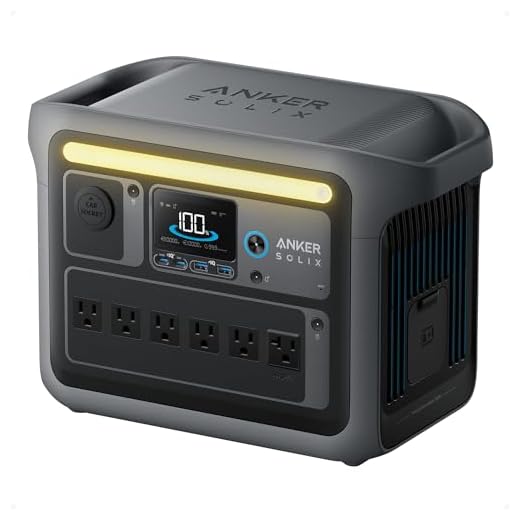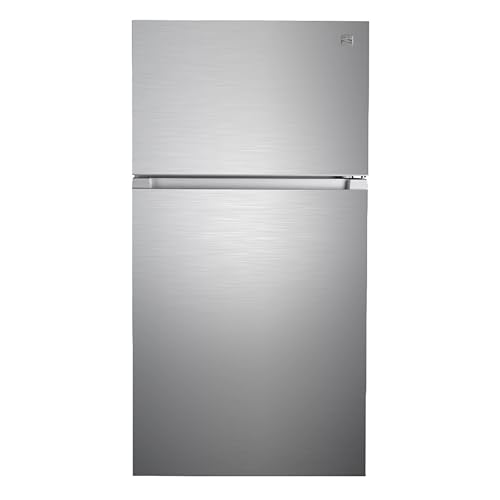



Uninterruptible Power Supply (UPS) systems are an essential component of many households and businesses, providing backup power during electrical outages or fluctuations. While UPS systems are typically used to power computers, routers, and other small electronics, many people wonder if they can power larger appliances, such as refrigerators.
The short answer is: it depends. UPS systems come in various sizes and capacities, and not all of them are capable of powering a refrigerator. The power requirements of a refrigerator can vary greatly depending on its size, type, and energy efficiency.
Most UPS systems are designed to handle the power requirements of electronic devices and are not intended to power high-energy appliances like refrigerators. The majority of UPS systems available on the market today provide power in the range of 500VA to 1500VA, which is suitable for small electronics and computers, but insufficient for a refrigerator’s power needs.
Does an Uninterruptible Power Supply (UPS) have enough power to run a refrigerator?
Many people wonder if an Uninterruptible Power Supply (UPS) can provide enough power to run a refrigerator during a power outage. The answer to this question depends on several factors.
First, it’s important to note that UPSs are typically designed to provide short-term power backup for electronic devices such as computers, routers, and monitors. They are not usually intended for powering large appliances like refrigerators.
Refrigerators typically require a significant amount of power to operate, especially when the compressor is running. The power requirement of a refrigerator can vary depending on its size, model, and energy efficiency rating. On average, a medium-sized refrigerator may require between 1000 to 2000 watts of power.
Most UPSs are designed to provide power in the range of 500 to 1500 watts, which may not be enough to run a refrigerator. Additionally, UPSs are typically equipped with batteries that provide a limited amount of power. The runtime of a UPS depends on the power draw of the connected devices. Running a refrigerator on a UPS would likely drain the batteries in a matter of minutes or even seconds.
In addition to the power limitations, UPSs are not designed to handle the high starting currents that refrigerators often require. When a refrigerator’s compressor initially starts, it can draw several times its rated running current. This surge of current can cause the UPS to shut down or even damage its internal components.
For these reasons, it is generally not recommended to rely on a UPS to power a refrigerator during a power outage. Instead, it is recommended to invest in a backup power generator or a dedicated refrigerator UPS specifically designed to handle the high power requirements of refrigerators.
In conclusion, while a UPS may provide some temporary power backup for small electronic devices, it is not suitable for powering a refrigerator due to its limited power output, battery capacity, and inability to handle high starting currents. It is best to explore other options, such as backup generators, to ensure uninterrupted power supply for refrigerators during power outages.
Understanding the Power Requirements of a Refrigerator
A refrigerator is an essential appliance in any household, responsible for keeping your food fresh and preserving its quality. To ensure that your refrigerator functions properly, it is important to understand its power requirements.
Power Consumption
The power consumption of a refrigerator varies depending on its size, age, and energy efficiency rating. On average, a refrigerator consumes between 100 and 800 watts of power. Larger refrigerators tend to consume more power than smaller ones. It is also important to note that older refrigerators may be less energy-efficient and consume more power than newer models.
Starting and Running Power
When you first turn on a refrigerator, it requires extra power to start the compressor and get the refrigerant flowing. This starting power, also known as the surge or peak power, is typically higher than the running power. Once the compressor is running, the refrigerator settles into its normal power consumption. It is important to consider both the starting and running power when choosing a UPS for your refrigerator.
To determine the required power capacity for a UPS, you need to know the starting power and running power of your refrigerator. This information can usually be found on the refrigerator’s nameplate or in the owner’s manual. Alternatively, you can contact the manufacturer for this information.
Choosing a UPS for Your Refrigerator
When selecting a UPS to power your refrigerator, it is crucial to choose a UPS with a power capacity that exceeds the starting power and running power of your refrigerator. This ensures that the UPS can handle the initial surge of power required to start the compressor and can consistently provide power during normal operation.
It is recommended to consult with a professional electrician or an expert in UPS systems to determine the appropriate UPS capacity for your refrigerator. They can consider factors such as the refrigerator’s power requirements, the duration of power outages, and any other appliances or devices that will be connected to the same UPS.
Remember to regularly maintain and test your UPS system to ensure its reliability and functionality. This includes checking the battery, verifying proper connections, and addressing any issues promptly.
In conclusion
Understanding the power requirements of a refrigerator is essential for ensuring its proper functioning and protecting your food. Adequately powering your refrigerator with a UPS can provide peace of mind during power outages and prevent potential food spoilage. By considering the starting and running power, choosing an appropriate UPS capacity, and seeking professional advice when needed, you can effectively power your refrigerator and maintain its performance.
Can a UPS Provide Enough Power for a Refrigerator?
Uninterruptible Power Supply (UPS) devices are commonly used to provide backup power during electrical outages or fluctuations. While UPS units can be a reliable source of emergency power for certain appliances and devices, they may not be suitable for powering a refrigerator.
Power Requirements for a Refrigerator
Refrigerators require a significant amount of power to operate, especially as they need to maintain a constant temperature. The power needed to run a refrigerator typically ranges from 500 to 1500 watts, depending on the size and efficiency of the unit.
Limitations of UPS Devices
Most UPS units are designed to provide power for relatively low-power devices, such as computers or small electronics. The power output of a UPS is measured in volt-amperes (VA), which is not the same as watts. The wattage rating of a UPS unit is usually lower than its VA rating.
Even the largest UPS units commercially available may not have a high enough wattage rating to power a refrigerator. Additionally, the battery capacity of a UPS may not be sufficient to provide power for a refrigerator for an extended period. UPS units are typically intended for short-term power backup, rather than continuous operation.
Another limitation is the startup power requirement of a refrigerator. When a refrigerator is turned on, it can require several times its normal power consumption for a brief period. This surge of power, known as inrush current, can overload a UPS and cause it to shut down or trip its internal circuit breaker.
Furthermore, refrigerators often have compressors and motors that require a stable and consistent power supply. UPS units may not be able to provide the necessary power quality and stability for these components to function properly.
It is generally recommended to use a generator or a dedicated backup power system specifically designed for powering a refrigerator or other high-power appliances. These systems can provide enough power, handle startup surges, and maintain a stable power supply.
In conclusion, while a UPS can be useful for providing backup power to certain devices, it is unlikely to be suitable for powering a refrigerator due to its power requirements, limitations of UPS devices, and the specific needs of refrigeration equipment.
FAQ
Can a UPS power a refrigerator?
Yes, a UPS can power a refrigerator, but it depends on the size and power consumption of the refrigerator. You need to make sure the UPS has enough capacity to handle the starting surge and sustained power requirements of the refrigerator.
What size UPS do I need to power a refrigerator?
The size of the UPS you need to power a refrigerator depends on the power consumption of the refrigerator. You will need to check the refrigerator’s wattage or amperage rating and choose a UPS that can handle that load. It’s recommended to have a UPS with a capacity at least 1.5 times the power consumption of the refrigerator to account for any starting surges or fluctuations in power demand.









